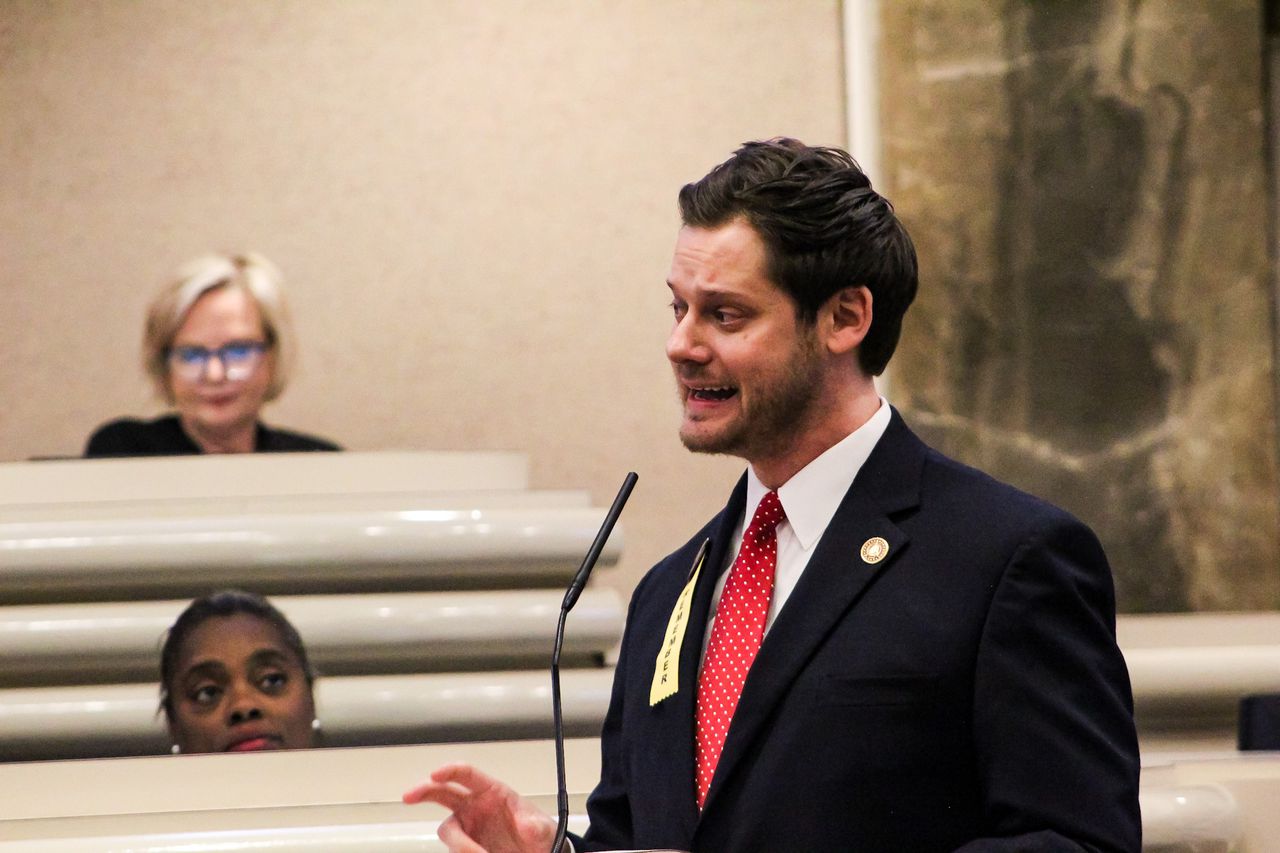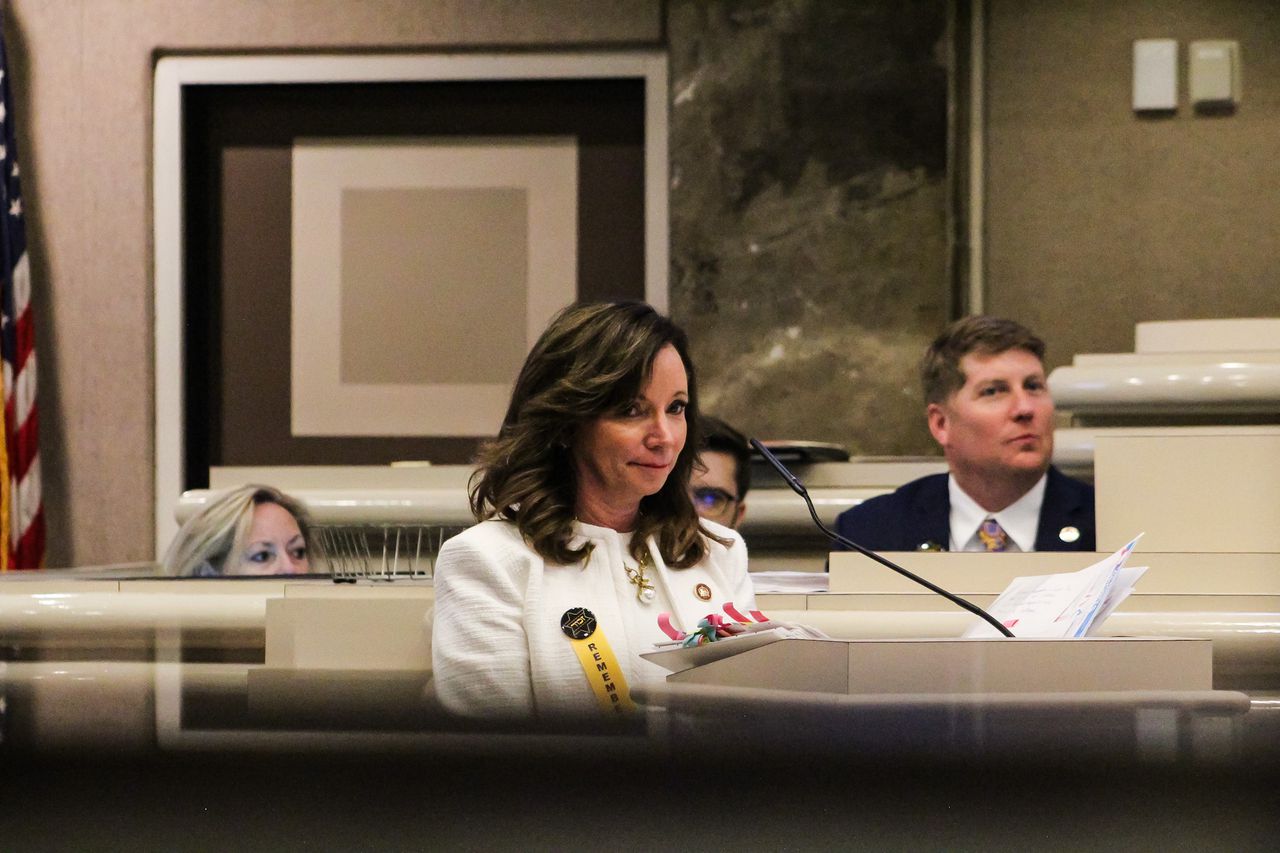Alabama House bans transgender athletes from competing in college sports
The Alabama House of Representatives on Tuesday passed a bill that would categorically ban transgender athletes from participating in collegiate sports.
A group of 40 Republican lawmakers sponsored HB261, which would require collegiate athletes to compete on teams based on the gender on their birth certificates. The bill passed 83-5 with 14 members abstaining.
An additional 53 members voted to add their names as cosponsors following the passage of the bill.
Rep. Susan DuBose, a freshman Republican from Hoover, said that if a transgender athlete were to compete on a team that did not align with the gender on their birth certificate even once, it would be too many times.
DuBose argued that the bill uses “biological sex” to determine athletic placement, rather than gender identity.
Rep. Chris England, D-Tuscaloosa, said he felt like he was “in the twilight zone.”
“It is almost like we are stopping some sort of epidemic in Alabama that is occurring, and I’m not sure that anybody in here can find one example of this ever happening in the state of Alabama,” England, who was one of the five votes against the bill, said. ” This is just an opportunity for people to create an issue, or a solution that is looking for a problem. And listen — look, I’m all about proactive activity here, but sometimes we just go a little too far.”
Across the United States, only about 30 transgender athletes have competed openly at the collegiate level, Inside Higher Ed reported.
Rep. Juandalynn Givan, a Democrat from Birmingham, asked if a college student who had received gender-affirming care would be disqualified from participating. DuBose said they would.
Rep. Susan DuBose presents HB261, a bill that would force transgender athletes at the college level to play on teams that align with the gender on their birth certificate. Sarah Swetlik/AL.com
An amendment by Rep. Scott Stadthagen, a Republican from Hartselle, also passed on the floor.
While the amendment is not publicly available yet, DuBose said it took intramural sports out of the bill, along with a two-year statute of limitations on “any cause of action.”
Rep. Patrick Sellers, D-Birmingham, both cast his vote and spoke in favor of the bill, citing a movie called “Juwanna Mann.” The movie chronicles a professional basketball player who pretends to be a woman to continue playing after being dropped from his team in a fictionalized version of the NBA. His summary and support were met with applause.
President Joe Biden’s administration recently proposed a Title IX rule that would only allow such restrictions relating to “important educational objectives,” like reducing the risk of injuries. Limits would have to take the sport, the level of competition and students’ ages into account.
Rep. Phillip Ensler, a freshman Democrat from Montgomery, said he worries that Alabama will be involved in litigation if this bill becomes law.
“This bill will very likely subject the state of Alabama once again to costly litigation that is going to cost the taxpayers dollars that they have earned hard that we should be using towards actual issues,” Ensler said, adding that if the bill becomes law and Biden’s Title IX rule is passed, Alabama could be found to be in violation of Title IX. “Then all the schools and all the children that this bill claims to protect actually can then lose their funding and can harm them even more than what’s currently happening.”
Ensler proposed an amendment that would codify compliance with NCAA guidelines, as well as state that nothing in the bill would supersede the rule of federal law should the new Title IX rule pass. Members voted to table his amendment.

Rep. Phillip Ensler, D-Montgomery, speaks out against HB261, which would force transgender athletes at the collegiate level to compete on teams that align with the gender on their birth certificate. Sarah Swetlik/AL.com
In 2021, Alabama lawmakers passed a categorical ban on transgender athletes participating in sports at the K-12 level.
At the congressional level, Sen. Tommy Tuberville, R-Ala., is the driving force behind similar federal legislation, along with 19 cosponsors.
HB261 protects schools who employ these limits based of the gender of an athlete’s birth certificate from retaliation, as well as protection for any student who “suffers harm as a result of a violation of this act.”
Rep. Rolanda Hollis, D-Birmingham, said she wished the House would focus more on legislation that would “protect our kids,” specifically referring to gun violence.
“I really wish that we would focus more on the gun violence that we’re having,” she said.
A Dadeville birthday party ended in a mass shooting Saturday night, killing four and injuring 32.
Gun violence is the leading cause of death for children in Alabama. Alabama also has some of the highest rates of gun violence in the United States.
Now that the bill has passed the House floor, it will head to the Senate for review.
